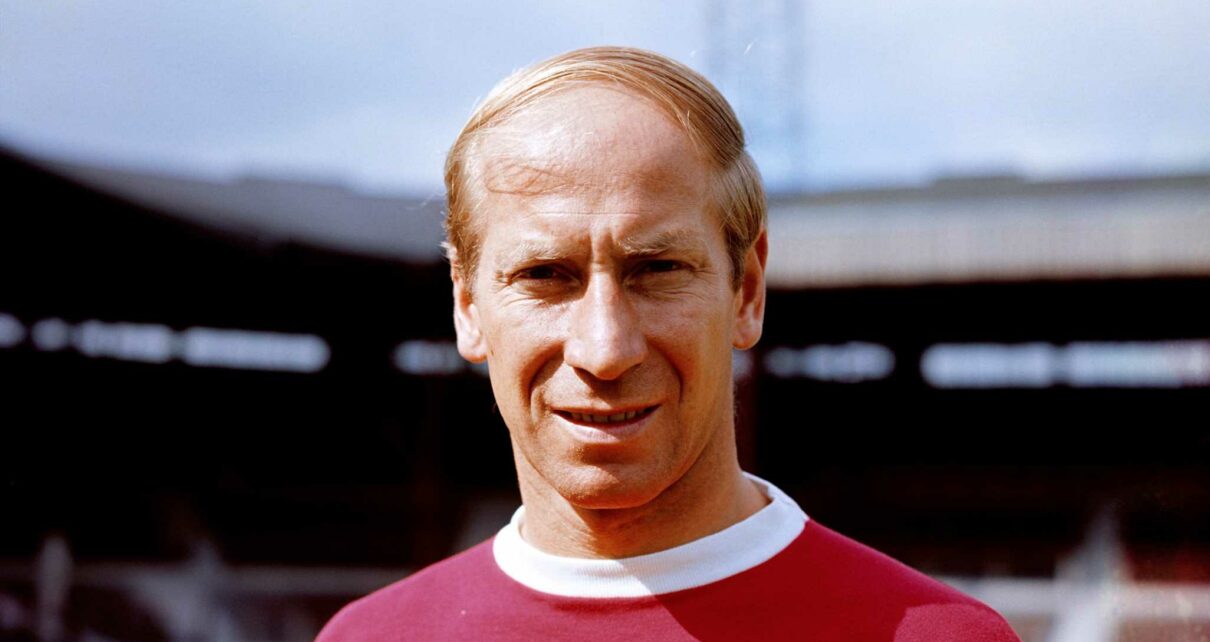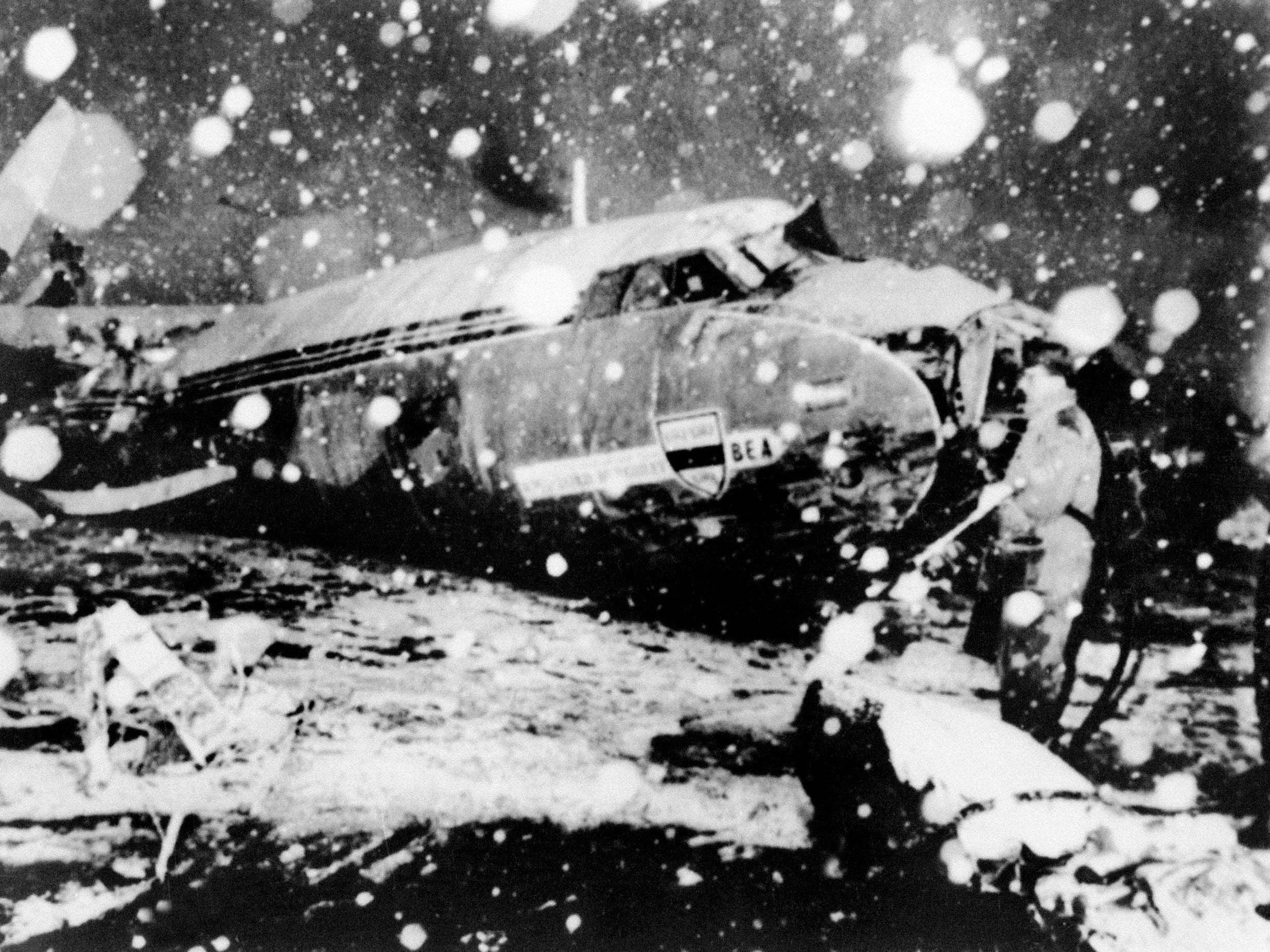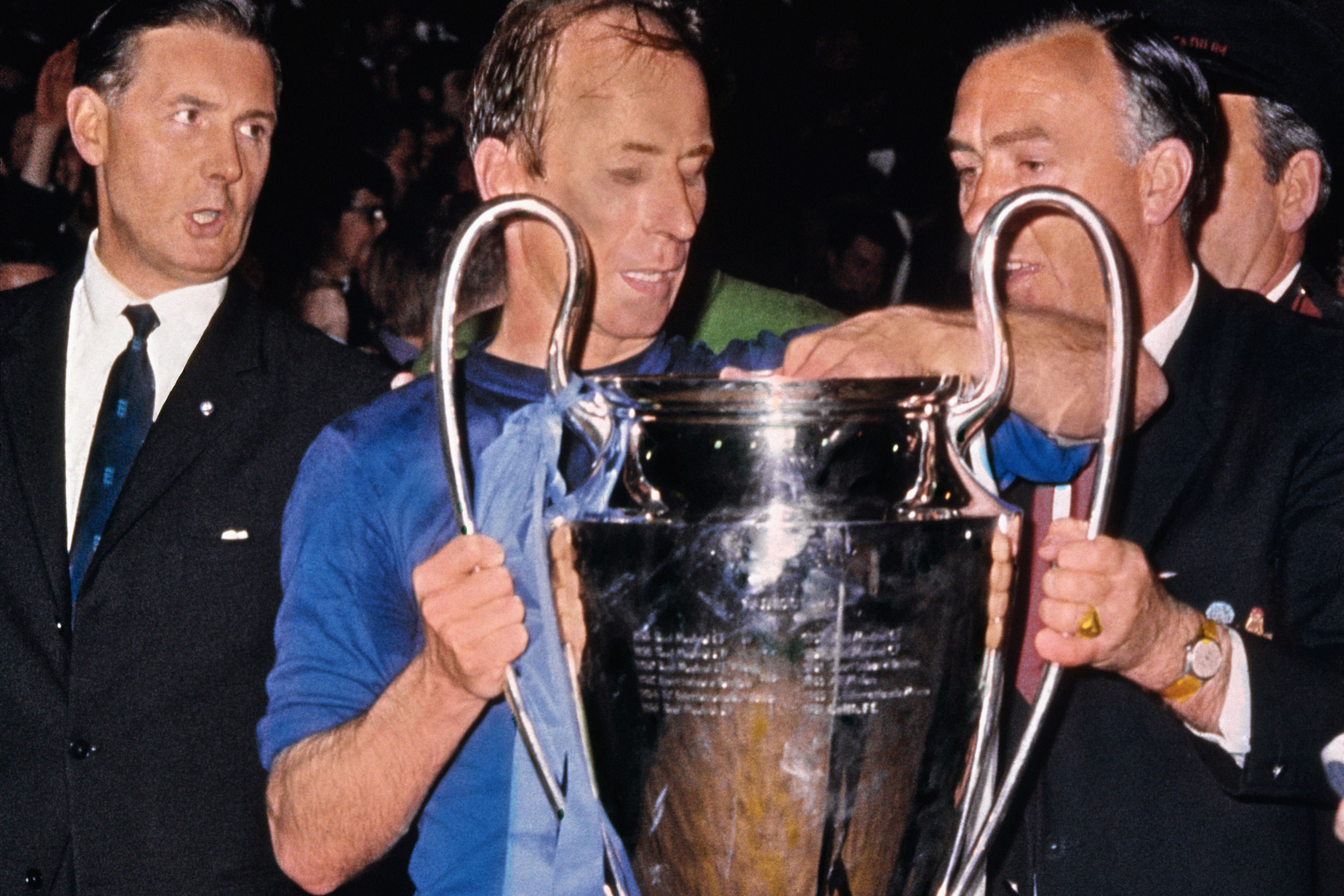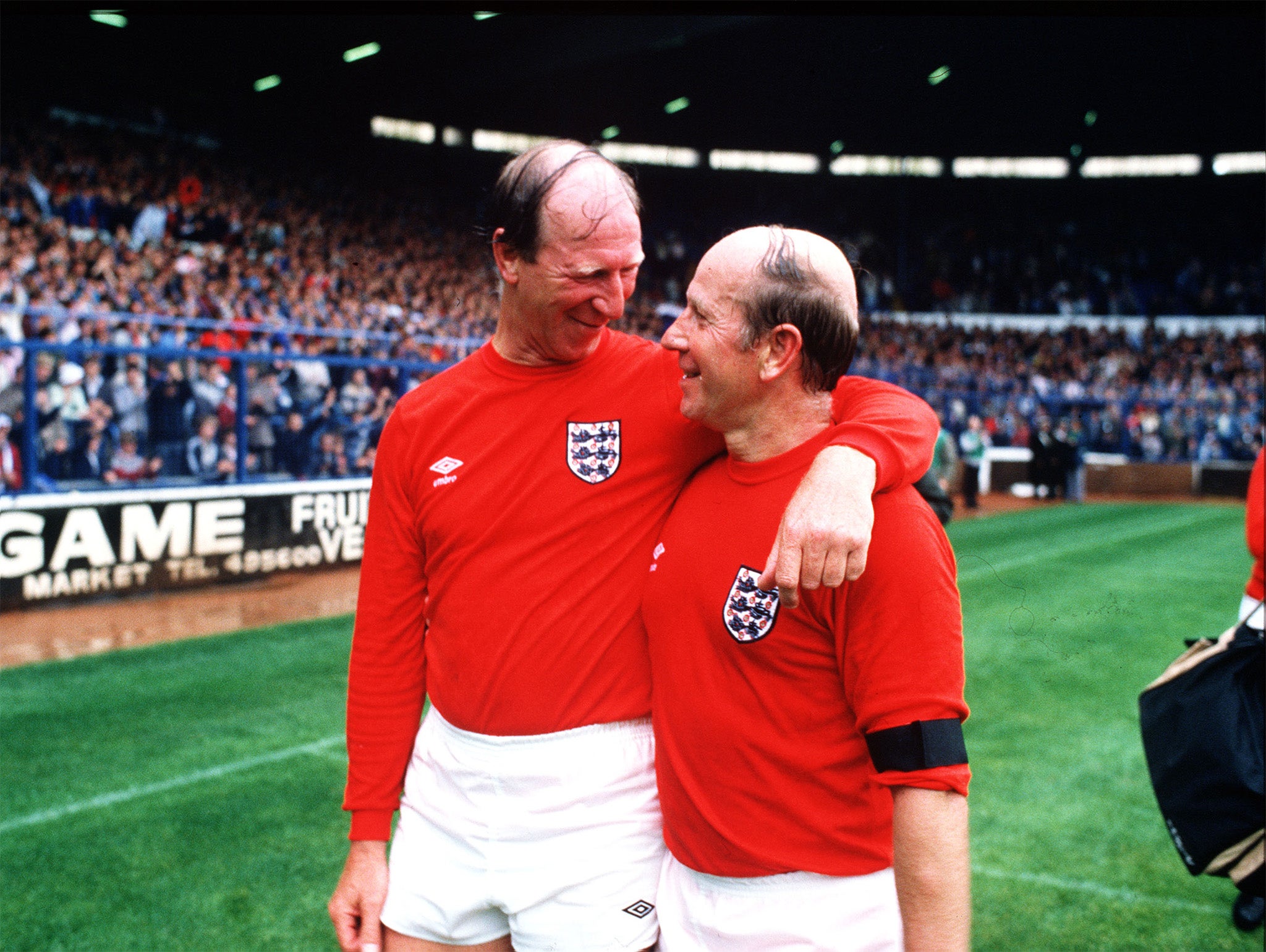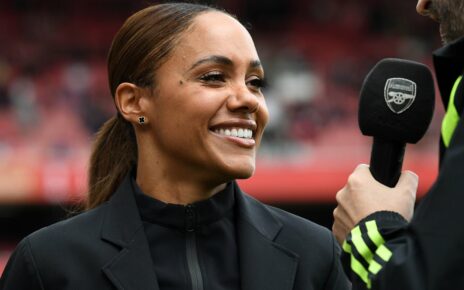BEA Flight 609 crashed on its third attempted take-off at Munich-Riem Airport
1966: On top of the world
The final frontier in United’s rebuilding was Europe; and Charlton scored a brilliant goal in the 5-1 quarter-final second-leg win at Benfica. They lost in the semi-finals, but Charlton went on to have a glorious World Cup that summer: scoring both goals in England’s semi-final win over Portugal, and winning player of the tournament and the Ballon d’Or, sealing his place in the football pantheon.
Bobby Charlton, centre, celebrates with the World Cup at Wembley
1968: Triumph in Europe
Busby and Charlton’s journey was completed with triumph in the 1968 European Cup. Charlton captained the side and scored the first and final goals of a 4-1 win over Benfica at Wembley. Ten years on from Munich, the promise of the Busby Babes was fulfilled. United was the first English team to win the European Cup.
Charlton lifts the European Cup with Manchester United in 1968 (PA)
1970s: End of a glorious career
Charlton went to the 1970 World Cup in Mexico but England could not retain their crown. He played his last United game in 1973, setting a record of 758 appearances, only broken by Ryan Giggs in 2008. After some brief managerial roles at Preston and Wigan, the England great has worked at his alma mater since 1984 as the club’s director and ambassador.
The Charlton brothers Jack and Bobby embrace at the end of a charity match at Elland Road, Leeds, in 1985
2000s: Family reconciliation
His autobiography reveals the extend of the feud with brother Jack and his mother Cissie, who had a falling out with Bobby’s wife Norma in the 1990s. But the brothers embrace on stage as Jack presents Bobby with the BBC Sports Personality of the Year Lifetime Acheivement award in 2008.
2020s: Decline in health
Charlton is diagnosed with dementia in 2020 and his public appearances are more limited. A statement by his family on 21 October 2023 announces his peaceful passing that morning. He leaves Geoff Hurst as the last living England player of the 1966 World Cup final.
Source: Read Full Article
